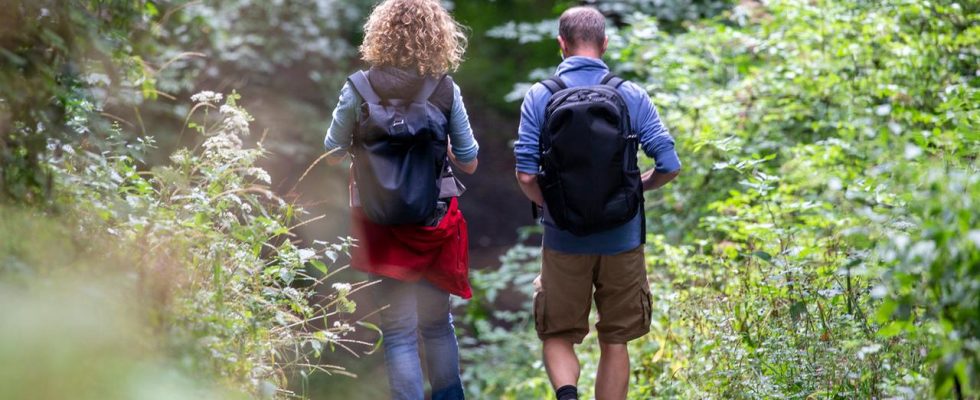background
During the Corona period, hundreds of thousands of Germans discovered hiking. And many have stuck with it. The new popular sport creates quite a few jobs in rural regions.
The hashtag #Hiking still inspires millions on social media, influencers fuel the hype every day with new videos in which they show the most beautiful hiking trails in Germany. One thing is certain: hiking after Corona definitely cannot be compared to before the pandemic.
The numbers also show this: According to representative surveys, a total of 400,000 people went hiking several times a week in 2017. During the Corona period, this number shot up; in 2020 there were already 600,000 and in 2021 even 1.5 million. And today?
“Were not prepared at all”
“Hiking guru” Heinz-Dieter Quack publishes the hiking monitor every year. His current figures show: Around two thirds of the new Corona arrivals have migrated back towards the beach.
“From a hiking tourism perspective, we would of course have wished that more people would have stayed, but to be honest we were not at all prepared for the onslaught in terms of infrastructure,” says Quack. “We had signs of overcrowding on the hiking trails and it is therefore understandable that some people have returned to their classic leisure behavior.” The professor at the Ostfalia University of Applied Sciences is happy that at least a third stuck with it.
Economic factor Hike
This growth has also made hiking a major economic factor. Every year, hikers spend 11.2 billion euros and create 144,000 jobs, especially in rural regions. And another corona effect ensures a golden hiking future.
“An above-average number of younger people – those under 30 – went hiking, and many of them stayed,” says Quack. “And I find it extremely exciting that they often experience hiking as a consciously analogue event. They also place a lot of value on classic, analogue signage and less on digital route guidance, for example.”
Cell phone fasting and experiencing nature
Cell phone off, pure nature experience, without constant sound, is also the motto in Willingen in the Rothaargebrige in Hesse. It is mid-April, cool and rainy, but the so-called Tuesday group is still well attended with twelve hiking enthusiasts. On nicer days there are up to 40 people there.
Anne Kampschäfer and Armin Schmalz met and fell in love while hiking. The pandemic then turned her hobby into a passion. “There wasn’t much else you could do other than move around in nature, everything else around you was closed. You almost became lonely, it was a very sad time, but it made our passion for hiking grow,” says Armin Schmalz .
His wife adds: “For the first few years I was almost always alone here in these forests. There were hardly any hikers to be seen, that has changed a lot since Corona. Today you can also meet a lot of hikers here on weekdays.”
“Corona gave us the push”
In fact, the number of hiking tourists in Willingen has risen steeply. 2023 was the second best year in the town’s history, with an increase of 13.6 percent compared to the previous year, says tourism director Norbert Lopatta: “Corona gave us the push. People have discovered that they can also do something on their own doorstep “It wasn’t possible to spend the night overnight, which is why many people resorted to day trips to the low mountain ranges.”
He is not afraid that the boom could be over any time soon: “I’m sure that we will increasingly benefit from short trips where people say, I no longer have to fly to London for two days for a lot of money, but I’m treating myself to the Sauerland for four days, Willingen for example.”
Comparatively cheap vacation
One advantage of hiking: Compared to other forms of vacation, it is relatively inexpensive. On average, hikers in Germany spend 57 euros per day including overnight stays. Summer holidays in the south cost twice as much, ski holidays in the mountains are even more expensive.
And hiking offers other great advantages: “I find it quite positive that you always meet new guests, get to know new people, have very nice conversations and therefore open up and learn a lot. I find that rather enriching,” explain participants of the Tuesday group in Willingen. “We look at a lot of nature, recognize all the flowers and blossoms and everyone knows something new. It’s just nature and beautiful.”
Hiking tourism has now become the fourth most popular form of holiday in Germany. And no one needs to be afraid that it might get boring at some point: According to the association, Germany has around 200,000 kilometers of hiking trails.

